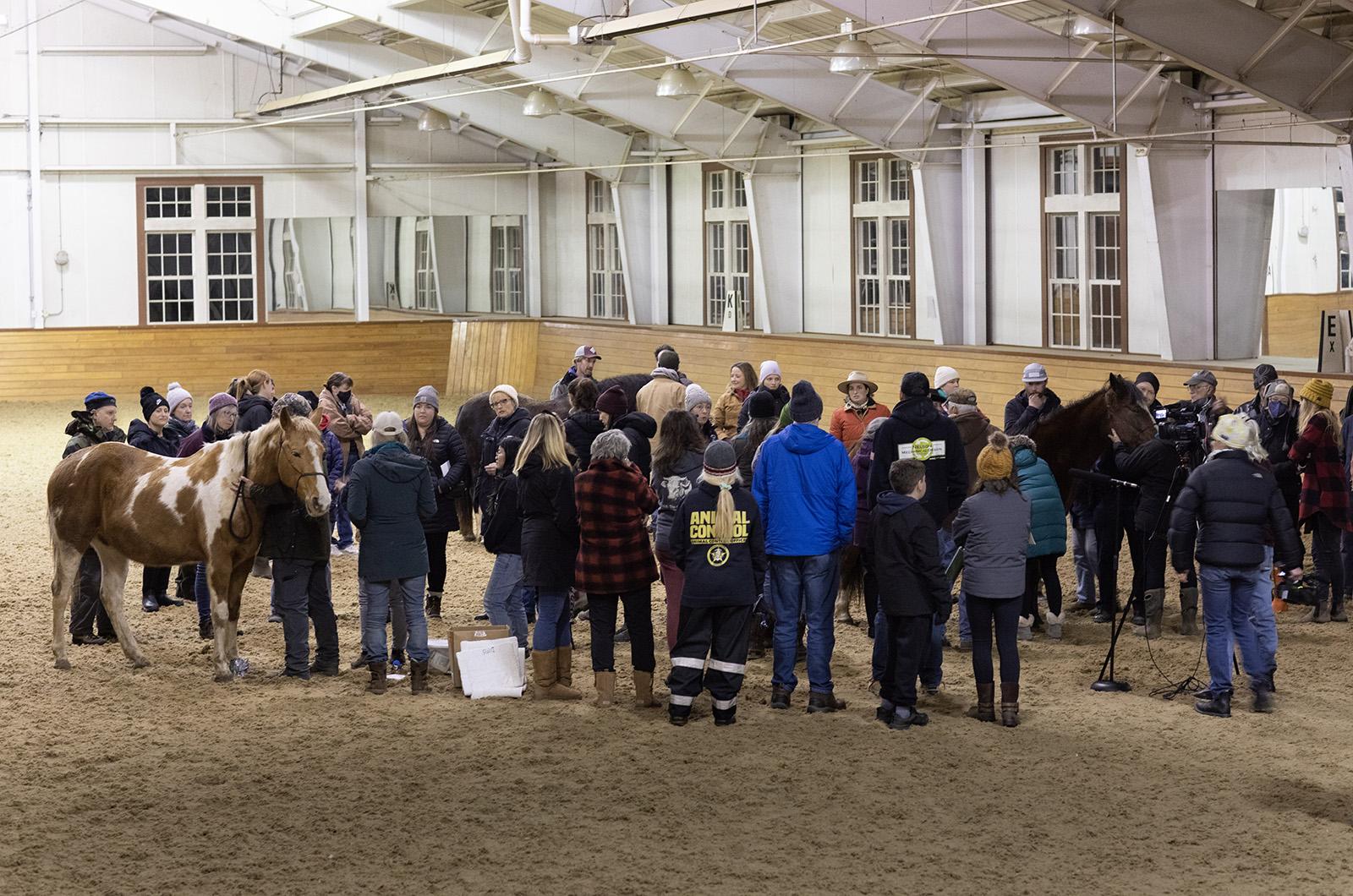Feel under the jaw of a horse and you’ll find a linguini-like vein that can give you the animal’s pulse. Pinch the skin around its shoulder and you’ll be able to tell if it’s dehydrated. If the gums go back to a pinkish hue shortly after pressing on them, you’re in good shape.
This was some of the advice extolled by Groveland-based veterinarian Suzanne Loheac, who came to the Island last week to lead a class in emergency equine first aid at the Misty Meadows barn in West Tisbury. The course was part of a broader effort on Martha’s Vineyard to prepare horse and other large animal owners to be able handle medical issues on their own, at least initially, as the Island’s veterinary network for all animals is already overloaded.
Laura Plunkett, an Island horse owner and board member at Misty Meadows Equine Learning Center, got a horse last year and was one of several Islanders who said they struggled to find full-time coverage for her mare.
“I was unable to get an on-Island vet because they don’t have any more space,” she said. “There’s too many animals for them to take care of.”

She was able to connect with one off-Island equine veterinarian who comes to the Vineyard about twice a week, though the schedule can get delayed to once every four or five weeks. She has a backup vet, as well, who comes over about once a month. But that can still leave gaps and caused a scare last year when she found ticks on her horse.
“I was worried about whether she had Lyme,” Ms. Plunkett said. “I had to wait several weeks to get that blood drawn.”
The Island’s shortage reflects a nationwide trend. Almost every state in the U.S. has reported a critical shortage of rural veterinarians, especially those who care for horses and farm animals.
During the Jan. 25 equine first aid class, Cynthia Segal, a Vineyard Haven resident, tried out some of the tips Ms. Loheac had taught the more than 60 attendees. It was crucial hands-on learning for Ms. Segal, who just started leasing her horse Lily and recently had some issues with wrapping up the horse’s feet.
“We’ve got a problem here on the Island with not having access to emergency care for large animals,” Ms. Segal said. “So we have to learn how to do all this stuff by ourselves.”
It’s something that the Island’s farmers have felt, too. The Martha’s Vineyard Agricultural Society has set up an emergency livestock fund and barn space to help Island farmers.
Julie Scott, vice president of the Agricultural Society board and head of Slough Farm in Edgartown, once worked as a veterinarian technician assistant and understands that not all veterinarians want to get into large animals. It can be dangerous work that’s rough on the body. It’s also an extra workload if the veterinarian wants to work with cats and dogs, too.
“If you have a clinic full of appointments, I don’t know how people could expect them to drop everything and come down,” she said.
Ms. Scott added that she has been brainstorming potential ways to entice more large animal vets to the Vineyard, possibly through creating a relationship with a veterinarian school. Several other Island organizations are working to ease the crunch, too.
Misty Meadows, Martha’s Vineyard Horse Council and the Agricultural Society have all teamed up to develop a store of medical supplies that would be open to the horse and farming communities to use in case of an emergency.
Eventually, Misty Meadows hopes to set aside one of its stalls as a medical bay, allowing any Island animals to be stabilized before potentially going off-Island for treatment. There are several liability and safety concerns that still need to be worked out for such a goal to come to fruition.







Comments (4)
Comments
Comment policy »